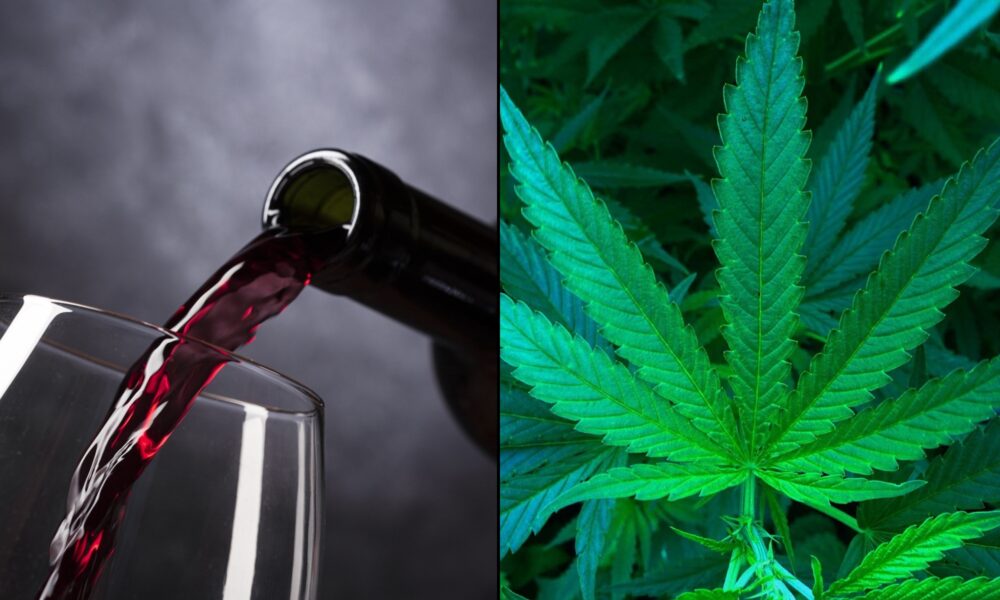“The federal government should look at the 90 years of successful alcohol regulation and apply similar rules to the cannabis market.”
By Francis Creighton, Wine & Spirits Wholesalers of America
Ever worry about whether that bottle of wine you bought at your local shop is the genuine product? Or whether that bottle of 80-proof whisky your bartender just opened really is 80-proof? No? Me neither.
In the 90 years since America’s experiment with prohibition ended, our beverage alcohol marketplace has evolved to become the safest, most vibrant, competitive and economically vibrant market in the world. As consumers, we don’t see all the moving parts making it so successful, but there is a complex partnership between two groups. On one side are the industry businesses that produce, distribute and retail alcohol, and on the other side is government—both state and federal.
Consumers in other countries can’t count on the same protections we enjoy here. Before COVID-19, China was facing intense scrutiny over counterfeit alcohol operations operating via loosely regulated ecommerce platforms of which regulators in America are only now beginning to calculate the impact. In recent years, people have died in Costa Rica, Ireland, India, Mexico and other popular tourist destinations after consuming alcoholic beverages adulterated with methanol. Unfortunately, these incidents are all too common around the globe—but not in the U.S.
The U.S. alcohol regulatory system has been a success—for the industry, certainly, but also for the consumer. It all comes down to public health and safety.
While alcohol regulations that most people encounter—like whether you can buy wine and spirits in a supermarket—happen at the state level, most people are unfamiliar with the extensive regulatory regime operated by one of the most important regulators in the federal government: the Alcohol and Tobacco Tax and Trade Bureau (TTB).
The TTB makes sure everyone in the industry is licensed and accountable. The agency regulates the formulas allowed for sale, the label on your bottle and how potency is measured (e.g., an 80-proof spirit or a 13 percent A.B.V. wine). It makes sure there is fair, legal competition in the alcohol market, ensuring consumers can make the best choices for their own needs, and not those of the companies producing or selling the product. And the TTB makes sure the taxes get paid.
Alcohol regulation is a major public policy success story. Alcoholic beverages are wildly popular in America, and the TTB works hard to tamp down on the trade in illicit products that endangers consumers in other countries.
Since the federal government still treats cannabis as an illegal drug, the marketplace effectively has ZERO federal oversight. There are no federal safety standards for formulas, packaging and potency. There are no rules for how businesses compete in the marketplace. And while there are a variety of state-based testing regimes, there is no single standard that protects people from California to Maine.
In states where cannabis is legal, licensed businesses are being undercut by a flourishing underground market that doesn’t answer to any regulatory agency. The illicit market (what we used to call “dealers”) is not bound by any consumer protections. They don’t have to tell consumers where their products are sourced from, they don’t worry about selling to minors and they certainly aren’t paying taxes.
When the federal government ended the prohibition of alcohol, it laid out clear standards of conduct in the alcohol market and then enforced those standards. The TTB, and its predecessor agencies, now have decades of successful and effective regulation under their belt.
Today, federal prohibition of cannabis has essentially ended, given that states are legalizing left and right and the federal government refuses to do anything. But rather than learning from the successful example of ending alcohol prohibition, the federal government is enabling an illicit market that is actively harming Americans while undercutting businesses that are trying to do the right thing.
The TTB’s federal oversight makes it easy for fresh and innovative players to come into the alcohol market—just look at the numbers of new brands that pop up every day.
But in a cannabis industry without any meaningful regulation, why would an innovator make the investment in a legal business when a black-market actor can come along, rip off their marketing and undercut their prices because they aren’t paying taxes or worrying about enforcement of any kind?
Everyone in the beverage alcohol market understands the standards they must live up to. And failing to live up to those standards means losing their license and their ability to produce and sell in the alcohol market. That just isn’t true in the cannabis market.
It’s the Wild West out there and it’s time the federal government to take comprehensive action on cannabis.
The federal government should look at the 90 years of successful alcohol regulation and apply similar rules to the cannabis market.
Doing nothing is a choice. And by doing nothing, the federal government is choosing to side with the illicit cannabis market and the cartels and the shady foreign investors who finance them.
It’s time for a change. It’s time to let the TTB get to work for the safety of all Americans.
Francis Creighton is President and CEO of Wine & Spirits Wholesalers of America.
Senator Pushes Marijuana Banking Bill Amendment To Provide Industry Access To Small Business Administration Services
Read the full article here

